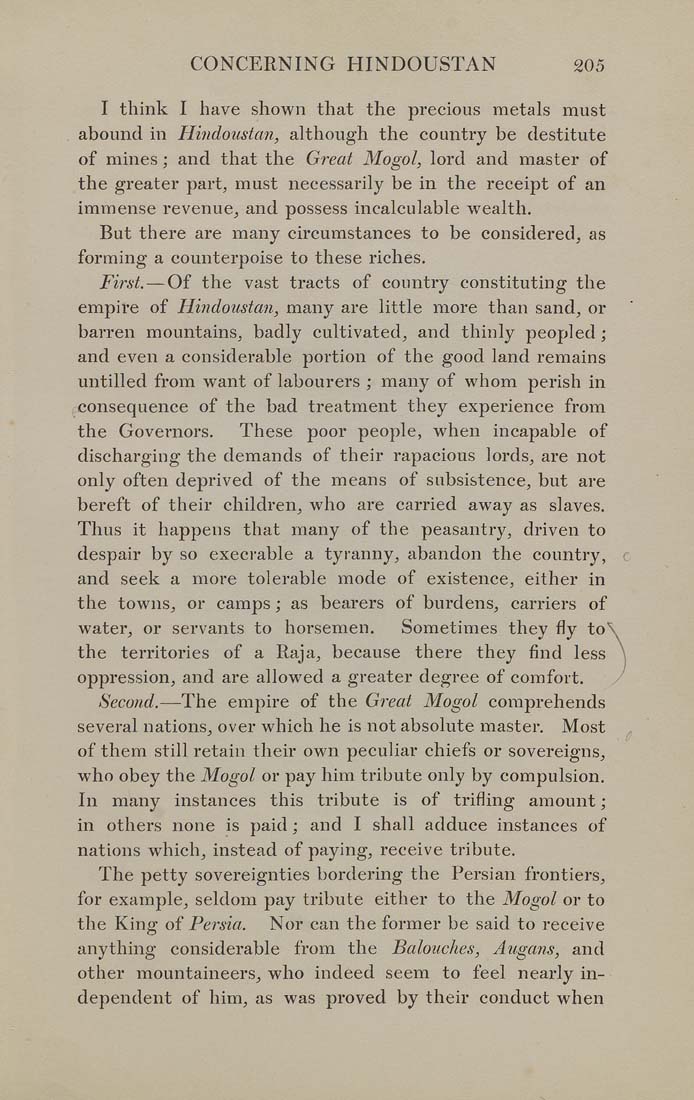CONCERNING HINDOUSTAN 205
I think I have shown that the precious metals must
abound in Hindoustan, although the country be destitute
of mines ; and that the Great Mogol, lord and master of
the greater part, must necessarily be in the receipt of an
immense revenue, and possess incalculable wealth.
But there are many circumstances to be considered, as
forming a counterpoise to these riches.
First. — Of the vast tracts of country constituting the
empire of Hindoustan, many are little more than sand, or
barren mountains, badly cultivated, and thinly peopled ;
and even a considerable portion of the good land remains
untilled from want of labourers ; many of whom perish in
consequence of the bad treatment they experience from
the Governors. These poor people, when incapable of
discharging the demands of their rapacious lords, are not
only often deprived of the means of subsistence, but are
bereft of their children, who are carried away as slaves.
Thus it happens that many of the peasantry, driven to
despair by so execrable a tyranny, abandon the country,
and seek a more tolerable mode of existence, either in
the towns, or camps; as bearers of burdens, carriers of
water, or servants to horsemen. Sometimes they fly to
the territories of a Raja, because there they find less
oppression, and are allowed a greater degree of comfort.
Second.—The empire of the Great Mogol comprehends
several nations, over which he is not absolute master. Most
of them still retain their own peculiar chiefs or sovereigns,
who obey the Mogol or pay him tribute only by compulsion.
In many instances this tribute is of trifling amount;
in others none is paid; and I shall adduce instances of
nations which, instead of paying, receive tribute.
The petty sovereignties bordering the Persian frontiers,
for example, seldom pay tribute either to the Mogol or to
the King of Persia. Nor can the former be said to receive
anything considerable from the Balouches, Augans, and
other mountaineers, who indeed seem to feel nearly in¬
dependent of him, as was proved by their conduct when
|








